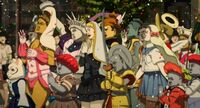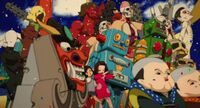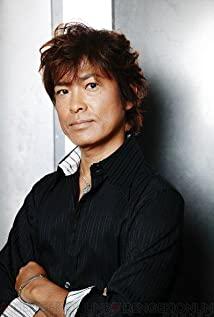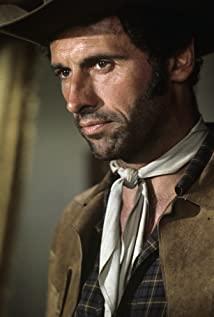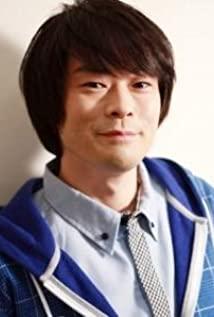The only scary thing about Inception is that it's real.
Remember: a group of dream thieves broke into other people's dreams from their own dreams, and affected the spirit of others by changing the karma in the dream. These dreams are like a layer cake or the Empire State Building, there are many layers (please imagine that the layers are not so neat, but arranged in topologically twisted space), and the dangers of each layer are terribly real, and if you want to wake up Come here, you have to "die" once. So the pirates either fell downstairs or were flooded, just like when we fly and chase in our dreams, we always have to be a little frightened to wake up. It seems that the only difference is that the "awakening" of the dream thief is to enter the next layer of dream.
So the question arises: how to distinguish between dream and reality? Hollywood director Christopher Nolan uses a small spinning top as an identifier: it's spinning, which means you're still dreaming. So, that "HAPPY ENDING" gave us a hard blow: Leonardo finally completed the Inception mission successfully, got rid of the shadow of his wife's death, and returned to his hometown to reunite with his two children. In this happy scene, the camera moves maliciously to the corner of the table: the small top is spinning. The audience exclaimed: Leonardo has been locked in a dream forever. This is obviously a long-planned "stunning shot" by Nolan.
However, the really scary part of this ending is not to the people in the play, but to the audience: don't you see the spinning top at your feet?
When you are in awe of Nolan, you may have forgotten that the story of "Inception" is not an original by Nolan. Its inspiration is "Inception Detective" by Japanese genius animation director Satoshi Kon Translation: Paprika/Papulica, 2006).
For Buddhists in the East, the core concept shown in "Space" is just common sense: not life is a dream, but life is a dream. When you sleep, it is a dream, and when you wake up, it is also a dream. Death wakes you up from this life, but you cannot wake up from endless reincarnation. Death, just like the "feigned death" of the pirates, is to enter the next round of life-the next dream: this is the illusion of the six reincarnations. The so-called cultivation in Buddhism refers to truly waking up from this endless great illusion and entering into the "nirvana" of "immortality and immortality".
From "Deadly Magic" (1999) to "Inception" (2010), Nolan has been borrowing ancient oriental concepts to apply modern science's gene duplication and transformation. His fresh imagination and powerful execution are astounding Those "idiot gangsters" in Beverly Hills. But Hollywood is just Hollywood after all: a "dream factory" that doesn't dream, as long as your logic is on the same line, all laying is for the final dramatic climax, pat on the shoulder to reassure the audience, and make a face to scare them Jump. Therefore, "Inception" wearing a dream suit actually still follows the skeleton of horror movies such as "I Know What You Did Last Summer", and it expresses nothing more than this concept: the fear of death is all human fears mother of.
So this story borrowed from the East is a pity.
It's not that your life is in vain without watching Jin Min's "Inception Detective", but if you feel that your life is not in vain after watching "Inception", you should accept this promotion. Some people say, "Only Americans can make "Inception". In fact, it is the world version of "Inception" that only Americans can afford to make, because the audience can still watch special effects when they don't understand the movie. .
It's not alarmist that special effects blockbusters are eroding our IQs and EQs: In the film industry, many producers and directors are on average less imaginative and moral than their audiences because the job gives Taking advantage of the convenience of their unbridled indulgence of vulgar desires, they poured their time, energy, and investment into it, with the result that copies of negative-star films produced every year could devour a city.
In this dangerous industry, Jin Min, born in 1963, is a rare genius. In his own words, the density of his ten-year career is far greater than that of ordinary humans. In 2010, he suddenly fell ill and died, and the film "Dream Machine" in preparation was stillborn. This is a terrible regret: despite the accumulation of a large amount of material, how does every tiniest element of the film function? "Only Jin Min himself can know."
Jin Min's works and talents are deeply admired not only by the audience, but also by his peers. Even those who have the ability to imitate him are not generalists (like Nolan): they have to have a complete worldview and superhuman practical ability, and nest these two things in different business models. Unlike Hollywood, the production structure of Japanese animation is pyramid-shaped: Dozens and hundreds of episodes of long-form TV versions (equivalent to TV series) are mass produced, and more sophisticated theatrical versions and independent film versions are produced on this basis. In the animation creation group, although each department has well-known talents at home and abroad, only a very small number of comprehensive talents, such as Hayao Miyazaki and Toshiyoshi Kon, can elevate the "animation film" to the "author's film". Height: In a genre often misunderstood as "children's films", cartoons provide audiences with a creative epiphany on a collective level.
Like Miyazaki, the original paintings of Jin Min's team have American elements, but the story is purely Japanese. The icy technological horror that is commonplace in American sci-fi movies takes on a different meaning once it is wrapped in the delicate feelings of Japanese neuroticism. In "Dream Detective", dreams are qualitative but invisible, infecting and eroding the real world like a silent virus. Dreamers will also have "allergic reactions". The materialization and spiritualization of dreams are "two-pronged", and the particles of the spirit are everywhere. This is a typical Japanese thinking.
Where is Jinmin than Nolan Gaoming? When "Inception" has to let a popular love story cover up the singularity of its mode, Jin Min's power of change is endless: including the philosophy of dream and reality, as well as life and death and love.
The gist of the story is this: Tokita, a genius inventor at the psychiatric institute, and his team members invented the high-tech therapeutic device DCmini, which is a branch-shaped device that can guide people into other people's dreams, read dreams and read them in various media. The miniature instrument that displays dreams on the platform is equivalent to a powerful U disk. Tokita's original intention was to use it to treat mental illness and realize his childhood ideal: to share the imagination and creativity hidden in human dreams. However, the DCmini, which was under development, was stolen: this caused panic in the whole place. Whoever stole it could connect it to a psychotherapy device at any time, disturbing the mind by disturbing the patient's dreams. Sure enough, the director and the researcher were "hit by arrows", and they suddenly began to daydream, behaving abnormally, babbling nonsense, and frantically hurting themselves: the gangsters used DCmini to randomly implant dreams into their subconscious.
The chairman of the treatment center asked Chiba and Tokita, the director and project leaders, to immediately stop the development of DCmini, and made a worrying remark that "human arrogant science will eventually lead to destruction". Chiba and Tokita argued, but the chairman reminded them that a woman code-named Papulica (red pepper) was carrying out "terrorist activities" in dream therapy. The R&D team led by Chiba was caught in a dilemma.
In fact, the lively red-clothed girl Red Chili Pepper is none other than the indifferent, professional, and ascetic strong woman Chiba herself when she used DICImini to enter the dream world. She is a phantom, which can also be understood as the other side of Chiba's inner self. (As the plot progresses, you will find that things are not that simple). The final truth is a big reversal: the researcher who was mistaken for stealing the instrument was also a victim, and the real bad guy was the chairman who asked to stop the development of the instrument and the gentle and cowardly-looking associate researcher Oyamauchi.
Then, the story seems to have developed into the "Dr. Incarnate" sci-fi horror movie that we are all too familiar with: the chairman becomes the ultimate boss, controlling the DCmini, the instrument starts to eat every dream it encounters, allowing the dream to invade reality, and then form a huge fusion of truth and illusion. The chairman became a giant, threatening to destroy the world and take over the human race.
Inception isn't a satire on this type of story. It is such a story. But it's the kind of epoch-making that can only be born occasionally in film history: like Lucas' "Star Wars," it captures all the best of a genre and breaks new ground. It's a trio of dream, film, and animation, creating a feast for the senses and the intellect, flawlessly smooth, with the few flaws in detail that only a true control freak director can do. In addition, it is a movie full of suspense, but not afraid of "spoilers". Even if we reveal all the mysteries of the plot, its real "secret" can only be detected by watching it in person, because the answer is embedded in every Within the frame, hidden in each set of soundtracks.
The beginning of the film is the dream of the policeman Fan Chuan. He is a good friend of the director of the therapy and a volunteer supporter of the dream psychotherapy experiment. During the treatment, he fell in love with Chili Pepper, the dream elf who was in charge of diagnosing him, but did not know her true appearance and identity. In the dream, Fanchuan was chased and killed in the circus. The girl in red came to help in a crisis. The swing of the circus became a vine, and Fanchuan hugged the girl like Tarzan. It became a life-and-death struggle in a train carriage and a murder in a hotel...
In just three minutes, Jin Min has shown us the most tiring and wonderful dream that an ordinary person can do: chasing, fleeing, flying, falling, transforming; what to think about, what to think about.
Movies are dreams. The special effects and montages come into play when the dream transitions between levels. There are countless dreams in the whole film, sometimes it is the background, sometimes it is the weapon of battle, sometimes it is the place where love germinates, sometimes it is the forbidden area of memory, and sometimes it is the illusion of the anxiety of the whole society. The functions of the dream are different, and the person in the dream is also infinitely variable. One moment becomes a fairy, another moment hides in the oil painting on the wall and becomes a sphinx, and another moment enters the sea and transforms into a mermaid. From Zhou Gong's interpretation of dreams, "Journey to the West" to Freud, these images spanned China and the West, and were rounded and flattened in Jin Min's hands, free and easy.
—This is not a hodgepodge of dreams. The "imagination space" that some filmmakers give to the audience is actually an image confusion that the creators themselves did not want to understand. "Inception" has strict logic, but there is only one spinning top to mark the boundary between dreaming and waking, while the "pattern" of "Detective" never repeats, even the background music can be a signal that you have entered someone dream, and its symphonic version may mean "dream and dream overlap", or "dream and reality" duel. What's more, from every transformation, every knickknack in the office and home, to every invasion of other people's dreams, and the gorgeousness of fighting with dreams, there are strict procedures and orders: who is in control. Dreamland, who is the thief? Who is the dream watcher in the "reality" outside the dream? How do you communicate in and out of dreams? When everyone's dreams are mixed in one time and space, can they still identify the respective "hosts" of the dream demons?
Jin Min is not missing anything. However, the film is full of road signs and hints that you may not be able to see clearly. In fact, sorting out plot clues is part of the thrill of watching The Detective, because these clues are so inextricably linked to our experiences of dreams, movies, and life.
What is the logic of dreams? First of all, it is a matter of course in the dream, and it is unreasonable outside the dream. When Paprika enters the director's dream to save him, he is wearing a crown, surrounded by a torii (Japanese shrine building), dolls, garbage, toys from childhood and various electrical products. The gigantic, flamboyant, chaotic and terrifying parade of gibberish (see stills "The Director's Dream"). It was an evil and joyful dream. The red pepper turns into a boy with a double bun, and saves the president in response to his dreams.
Secondly, it is Wangmei in the dream to quench thirst and do whatever one wants. In our dreams, we can become transsexuals, watching ourselves like a bystander, and participating in the story. The most common situation is that we do not know whether it is someone else or ourselves who is acting, and the "twins of the self", Chiba and Chiba, are a reflection of this experience. Dreams satisfy us and strike us again, but compared to reality, our happiness never reaches the peak, and there is always a sense of security in our dangers.
For this "just a little" regret, we have to mobilize our senses: a dream is a systemic movement, an apperception experience. When the red pepper enters the dreams of others, she first becomes the Monkey King, and the president's face appears on the somersault cloud under her feet. When the "Monkey King" is in danger, she suddenly finds the movie poster of "Tarzan" beside her. The inconspicuous monkey also became the president's face (see stills), and spoke: he was her guardian outside the dream, watching the dream through the computer screen, grasping the overall situation, and concealing his own consciousness without hesitation, In order to avoid being discovered by the enemy in the dream and cut off the connection. Here, the director's "deformation" sticks closely to our dreaming experience: when we escape in a dream, we want to become as small and unexpected as possible, and even become a barrier for mosquitoes to hide in the toilet. in the door. Even so, we feel the danger of being found, which attracts and disturbs us strongly, until the door is kicked open one by one, and if it cannot be transformed again, we are only "dead" - waking up.
Next, is the relationship between dreams and movies. 3D movies are a way to closely combine other perceptions of the body with the infinitely magnified vision of the screen by referring to dreams, and Jin Min can let you "full participation" without 3D special effects. Plots and imagery of filmmaking and movie-watching are constantly present in the film, as well as "therapeutic" passages of dreams being played back in Internet bars (like dreams, the Internet is a medium for venting stress). The director makes the movie imitate the dream, and also allows the dream to read the movie, so that we can get enough of the five elements and gossip of "in the play, outside the play, and outside the dream". When the circus swing became Tarzan's vines, and the jungle became a train box, you knew the magic of montage, and jumped from "art short films" to "best-selling feature films", from adventure films to spy films , from the suspenseful area to the romantic area. As the levels of ego, id, and superego progress, a recurring dream is constantly disguised. Anxieties and obstacles in the sleeper's heart can always be exchanged for unexpected and reasonable dream plots, and in the end, they may all be captured on the screen: like Red Chili pepper savoring Fanchuan in the movie theater of her dreams The "Dream Movie", just like the poem: You decorate other people's dreams.
In fact, our dreams every night are as wonderful as in the film, but we just don't notice them when we wake up. But it is precisely because we are "in this dream" that we cannot accept Jin Min's "perfect presentation", and we complain about "can't keep up, can't understand".
Are we really "incomprehensible"? This comes to the intersection of the film's suspense and Jin Min's philosophy of life.
The biggest gimmick of "Inception" is: It turns out that this is still a dream! But the taboo of "The Wolf is Coming" is no more than three things. The audience only needs to memorize a few iconic details, and the maze of the film has come to an end. But here in Jin Min, the accident was a slippery fish. For example, when Fanchuan "woke up" from a dream, the orange-red peaceful light enveloped him, and the girl in red was watching him tenderly. That muted tone is very much in line with how we feel when we wake up from a nightmare, especially when someone around you is revealing the "truth" to you: how your dream was just now.
It is in these peaceful moments that something slips away. Jin Min's rhythm is completely set according to the inner rhythm of watching the movie. Every time a paragraph is beautifully completed, there is always a small "crossing the door". When we breathe, our attention is bound to be distracted, and the next paragraph will "take advantage of the empty space". The extraordinary thing is that these "passes" are never the same, no matter how "pre-prepared", he always tries his best to deceive your sense of security, and further arouse doubts, so that you keep falling into traps and be caught off guard, and first discover your dreams. The manipulator is always someone else, and then everyone's dreams begin to blend and overlap, and finally, the dream finally invades the real reality "in broad daylight". In terms of visual effects, each time it is more gorgeous, each time it is grander, it develops logically in a spiral and waves, but when you feel that "this is the end", it turns out that this is still... not the end.
As soon as the bad guys are exposed, the truth seems to be revealed. But the real suspense is not "Who", but "Why".
In Hollywood sci-fi blockbusters, the least important thing is Why: Bad guys destroy the world, good guys save the world. But Jin Min carefully set up each person's motives. What he saw in his dreams, and even what he saw in reality, are the reflection of personal knots, "everything is created by the heart".
Let's start with the behind-the-scenes actors in the film. The chairman, who has been in a wheelchair, has an octopus in his lower body in the dream, and is always attacking with vines. When his deputy, Oyamauchi, who helped Zhou and abused him, hesitated because he loved Chiba, the chairman scolded him: What on earth did I "join" with you? In the final confrontation, the chairman turned into a giant and stood up and issued a "BOSS manifesto": "I will cure all defects"!
It turned out that the original intention of the chairman's series of conspiracies was nothing but a projection of his own "bad behavior". The so-called "coupling" means that the hill can move freely, but he cannot.
Similarly, the blue butterfly group is the symbol of the dream in the small mountain. It has long appeared in "reality". When Chiba and Tokita and others entered the home of the original suspect, Hiroshi, there were butterflies among the scattered decorations in the hut. specimen. This means that this scene is not Risen's home, but a dream that permeates the consciousness in the hill, and the butterfly is the fantasy of the impotent, a symbol of the desire for control. So it's not surprising: Koyama catches a red pepper in a dream and turns her into a stuffed butterfly. What's terrifying is that he also shed her "skin", which revealed Chiba, the body of red pepper in the real world, the elusive iceberg beauty in Xiaoshan who feels inferior to sex and career.
The sadomasochistic and erotic undertones of this scene are obvious, and Jin Min geniusly made porn "molt" into IQ: this was originally a pornographic dream dominated by Koyamauchi. Meanwhile, Fanchuan is quarantined in another dream and sees Paprika/Chiba being violated through the screen. And the process of his rescue of Chiba reflected his own knot: because he could not face up to the death of his college friend, he mistaken the plot in the suspense movie they made together in the past as the reality of "the friend was killed". and became a police officer. He falls in love with Chiba/Chiba because only she can help him see the inner world.
Broken and smashed, everyone's heart is very simple: low self-esteem because of fat, resentment because of disability, doubt of the present because of nostalgia for the past, pressure because of being called a genius, because... all these emotions are like under the boulder. Weeds, in the dream of removing the burden, grow wildly gorgeously.
It sounds so simple, but you are just "habitually oblivious." Because Hollywood B-level blockbusters never tell us why there are always some boring careerists who want to control human beings and invade the earth. They tend to acquiesce terrorists all over the world as lunatics, setting lunatics as irrational paranoia. So, whenever the final boss comes up, we always automatically filter what they say: it's pretty much the same thing anyway.
Similarly, it is difficult to guess the true love relationship of this film without seeing the end, because in order to avoid distracting the audience's attention from the special effects, the love relationship of ordinary sci-fi movies is always single and fixed. According to this law, the police officer Fanchuan and the therapist Red Chili Pepper at the beginning of the film are obviously a couple, but the result is unexpected.
This is the poison of film abuse: paralyzing our insight, and we would have enough emotion and intelligence to understand any better film. Today, our ignorance may turn the entire film backwards.
In the film, personal knots are projected not only in dreams, but also on others. Compared with the bad guys, what hides deeper are the good guys' hearts, such as the genius Tokita, such as the healer Chili Pepper/Chiba himself. In the reality invaded by the dream, the red pepper and Chiba officially face each other, but their thoughts and actions are not completely the same, and they even love each other. Chiba said, "Little Pepper, don't surpass yourself." Her lively "clone" replied, "How do you know that you are not my clone?"
Dreams are the material of psychoanalysis. The code name of red pepper means adding a little seasoning to other people's anxiety, stimulating the taste buds and unraveling the knot. And what we most want to analyze is always the analyst himself. In the space where dreams and reality are mixed, Chiba finally faces herself, and it is her turn to "transform" instead of Chili Pepper: she becomes transparent and has a dream shared with her partner Tokita, in the dream we find , what she really loves is the childlike naive genius fat Shitian around her.
From here, you can get a glimpse of Jin Min's worldview: this "dream machine" is also a realist who believes in technology and the future. In the end, this film is not a film to vent the depravity of modern society and the horror of science and technology, but to celebrate the progress of science and technology and the warmth of humanity. The chairman was full of fear of technology, just like the chanting of the terrifying mechanical puppet: "Dream of daytime at night, bright and beautiful dream of darkness. But the ignorant sun will drive away the darkness, scorch the shadow, and finally burn itself." The ignorant sun is the technology in the eyes of the chairman: "What is technology? In deep dreams, it's just garbage." In his opinion, the beauty and magic of dreams are completely different from the mechanical, cold, and orderly technology. He cried out "to heal everything", "Man should live in a dream."
This is where the "reversal" of the film lies: As mentioned earlier, Tokita invented the DCmini, originally to share his dreams and dreams with his friends, to connect everyone's worldview, and to let technology warm human beings. Dreams, indeed, can heal reality, not control it. In the end, both the bad and the good are demanding "healing", reaching the same destination in the anxiety of modern people.
In the confrontation with the chairman, the red pepper made an ultimate transformation: a newborn baby, while sucking everything in this chaotic world where dreams and reality are not separated, grow up until it grows into the appearance of Chiba, The world is back to normal.
This is a realist interpretation of dreams. Here is a mention: Yasutaka Tsutsui, the original author of the novel in this film, is a typical academic intellectual. This type of scholar has been trained in "postmodern theory" and is always caught in the endless movement of self-reflection. There is usually no answer to this kind of introspection, but Jin Min's film still gives an answer. Although he knew that "everything is like a dream bubble", the warmth and certainty when the sunshine of reality shone down still makes it hard to believe that the world under our feet is by no means a dream.
In 2010, Jin Min was suddenly diagnosed with terminal cancer. At that time, he was eagerly stepping on the road of reality, preparing for a higher peak in his career: "Dream Machine". After experiencing the unbelief in his heart, Jin Min wrote in his will: I cried. I really cried. I am so sorry for these talents, I want to stay whatever I say.
From his body inflated into a balloon to being swallowed by a robot, this arrogant person once imagined countless ways to wake himself up from his dreams in the film, but he was unable to wake up from the big dream of life. So, things went back to the spinning top. You can imitate the worldview of the believers and act in a movie, but you can't practice like them: we only remember this life, we only feel this life, how can we not hold our dreams to reality?
View more about Paprika reviews



